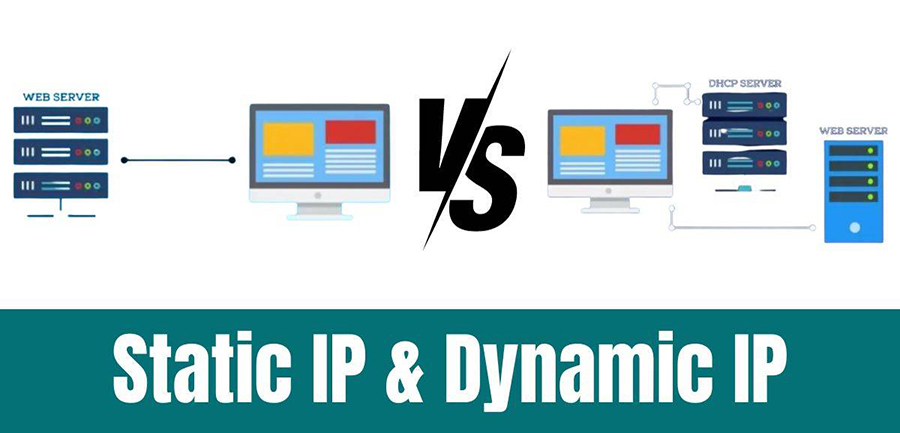In the vast field of IIoT, network connection is the basis for communication between devices, data transmission and remote control. In this process, the allocation and management of IP addresses is particularly important. Static IP and Dynamic IP are two main methods of IP address allocation, each with unique characteristics and application scenarios.
Static IP, also known as fixed IP address, refers to the IP address that is assigned by an operator for a long time to be used by a computer or network device. This address is fixed and will not change over time unless manually changed by the operator. Static IP addresses are often used in situations that require stable connectivity, high security and precise control, such as large enterprise networks, servers, VPN connections, etc.
Dynamic IP refers to the IP address that is automatically obtained and assigned when a network connection is established. Due to the complexity of network environment, dynamic IP address will change constantly according to factors such as network traffic, load condition or user demand. Dynamic IP is widely used in home networks, small enterprise networks, cloud computing, CDN and other scenarios to improve the utilization rate and flexibility of network resources.

Static IP: It is manually assigned by the operator or network administrator and set to be fixed in the device. This approach requires additional configuration and management costs, but ensures the stability and predictability of IP addresses.
Dynamic IP: automatically assigned through protocols such as DHCP Dynamic Host Configuration Protocol, and may obtain a different IP address each time you connect to the network. This approach simplifies network management and improves resource utilization, but the variability of IP addresses also brings some uncertainty.
Static IP: Due to the fixed nature of its IP address, it is susceptible to targeted attacks and scans. Therefore, when using static IP addresses, it is necessary to strengthen network security measures such as firewalls and intrusion detection systems.
Dynamic IP: Due to the constant change of IP addresses, it is difficult for attackers to continuously track and locate target devices, thus improving network security and privacy protection levels. In situations where user privacy needs to be protected, such as when using a proxy server to access restricted resources, dynamic IP has more advantages.
Static IP: suitable for applications that require high stability and security, such as enterprise servers, VPN connections, remote monitoring, etc. In these scenarios, static IP ensures the stability and predictability of network connectivity, making it easier to manage and maintain.
Dynamic IP: widely used in home networks, small enterprise networks, cloud computing, CDN and other fields. The flexibility of dynamic IP allows network resources to be dynamically adjusted and optimized according to actual needs, improving service availability and response speed. In the field of Internet of Things, dynamic IP also provides a flexible network access method for large numbers of devices and ensures the security and reliability of data transmission.
In the industrial Internet of Things, static IP and dynamic IP each have their own place.
● Monitoring of critical equipment:
For key devices that require real-time monitoring and remote control, such as robots and sensors on the production line, using static IP addresses can ensure stable and predictable network connectivity, improving the accuracy and efficiency of monitoring and control.
● Data center and server:
As the core components of industrial IoT, data centers and servers can ensure continuity and reliability of network services by using static IP addresses for easy management and maintenance.
● Flexible resource allocation:
In scenarios such as cloud computing and edge computing, dynamic IP can dynamically allocate network addresses based on actual needs, improving resource utilization and flexibility. For example, in the allocation and management of cloud resources such as virtual machines and containers, dynamic IP can ensure that each cloud instance has an independent network address.
● Internet plus:
In industrial IoT, a large number of devices need to be connected to the Internet for data transmission and remote control. Dynamic IP provides flexible network access for these devices, while ensuring the security and reliability of data transmission. Through dynamic allocation of IP addresses, the IoT platform can more effectively manage and schedule device resources.
Static IP and dynamic IP, as two main methods of IP address allocation, play an important role in industrial IoT. Static IP plays an important role in key equipment monitoring, data centers and servers due to its stability and predictability; Dynamic IP has shown its unique advantages in cloud computing, Internet of Things and other fields with its flexibility and security. In practical applications, the appropriate IP address allocation method should be selected according to specific needs and scenarios in order to optimize network performance, improve resource utilization, and ensure network security.